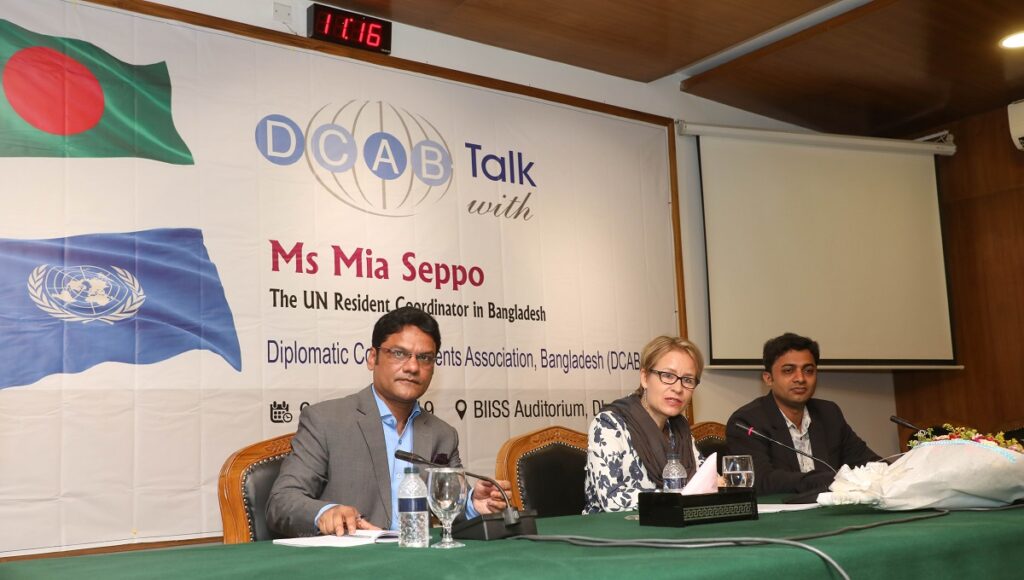Dhaka, Oct 9 (UNB) – The United Nations has recognised the international community’s “collective failure” to influence Myanmar and find a durable solution to the Rohingya crisis.
“There’s a collective failure to influence Myanmar. That’s not just the UN. It includes many others as well,” UN Resident Coordinator in Dhaka Mia Seppo told diplomatic correspondents at DCAB Talk at BIISS auditorium in the city on Wednesday.
She said the UN has been able to keep continuous attention on the crisis, bring together member states for conversation about the crisis and make some progress on accountability issues on human rights violations.
The UNRC said it is really important to keep in mind that any solution that they look for has to be a sustainable one that consists of different actions. “I think no one underestimates the complexities of the Rohingya crisis.”
Seppo said ensuring a sustainable solution to Rohingya crisis is not a lofty idea but a concrete requirement for it to work.
Bangladesh is hosting over 1.1 million Rohingyas and most of them entered Bangladesh since August 25, 2017 amid military crackdown on Muslims there.
Putting emphasis on working on both sides of the border, the UNRC said they need to continue to seek ways to improve conditions in Rakhine State and what they can to help Rohingya children, women and men – whatever they are – prepare for the rest of their lives.
“This’s the only way to end the tragic cycles of violence and displacement that have plagued the Rohingya people for decades,” she said.
Seppo said the UN has over the past month seen a rapid change in the narratives about Rohingya and the emphasis is on the Rohingya as security risk, as potential extremists and as criminals. “Let’s not forget they’re human beings with dreams and aspirations just like you and me.”
She said the root causes of this crisis, of course, lie in Myanmar and the solution to the crisis lies in Myanmar, too.
The UNRC said a key objective is creating conditions conducive to voluntary repatriation in safety and dignity. “Still, regardless of when that happens, we’ve to continue to address the impacts of this crisis on Bangladeshi host communities and the Rohingya refugees while they’re here.”
Seppo highly appreciated Bangladesh’s development since independence, terming it a remarkable success story.
She said Bangladesh has been on an impressive development journey since its independence in 1971 and the country is expected to reach a significant milestone in the drive to 2030.
Seppo touched upon issues related to Bangladesh’s role as a member state of the UN, outcome of the last UN General Assembly, Sustainable Development Goals (SDGs), human rights issues, violence against women, climate change, disaster management and partnership with media.
She appreciated media’s efforts in contributing to the public debate on governance, the rule of law and human rights saying media, the fourth estate, contributes to accountability.
“The UN stands up for freedom of expression and opinion, including by the media. We’re your partner and we count on your partnership as advocates for development and rights,” Seppo said.
Diplomatic Correspondents Association, Bangladesh (DCAB) arranged the DCAB Talk with its President Raheed Ejaz in the chair. The DCAB general secretary also spoke at the event.




